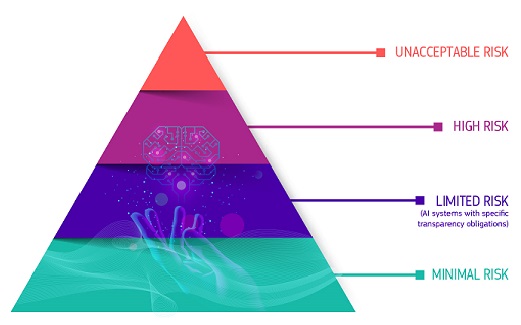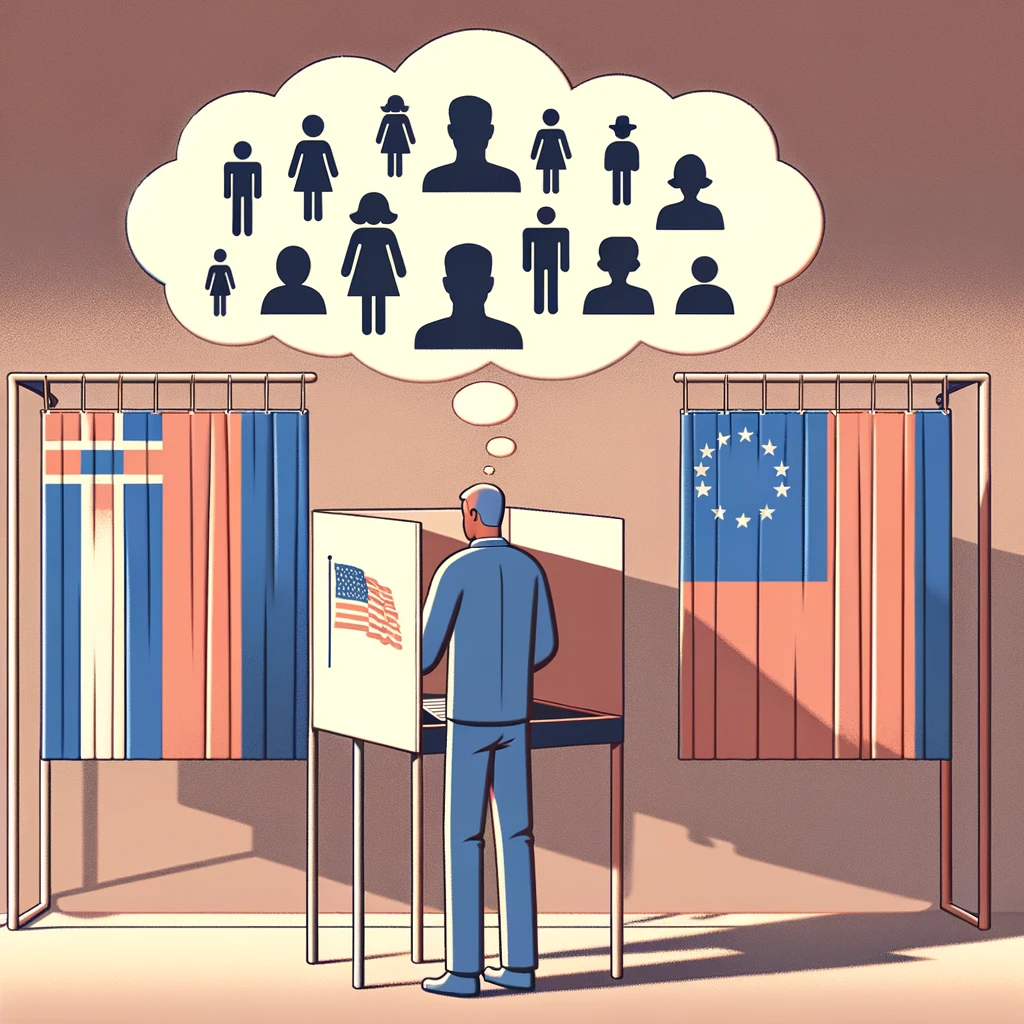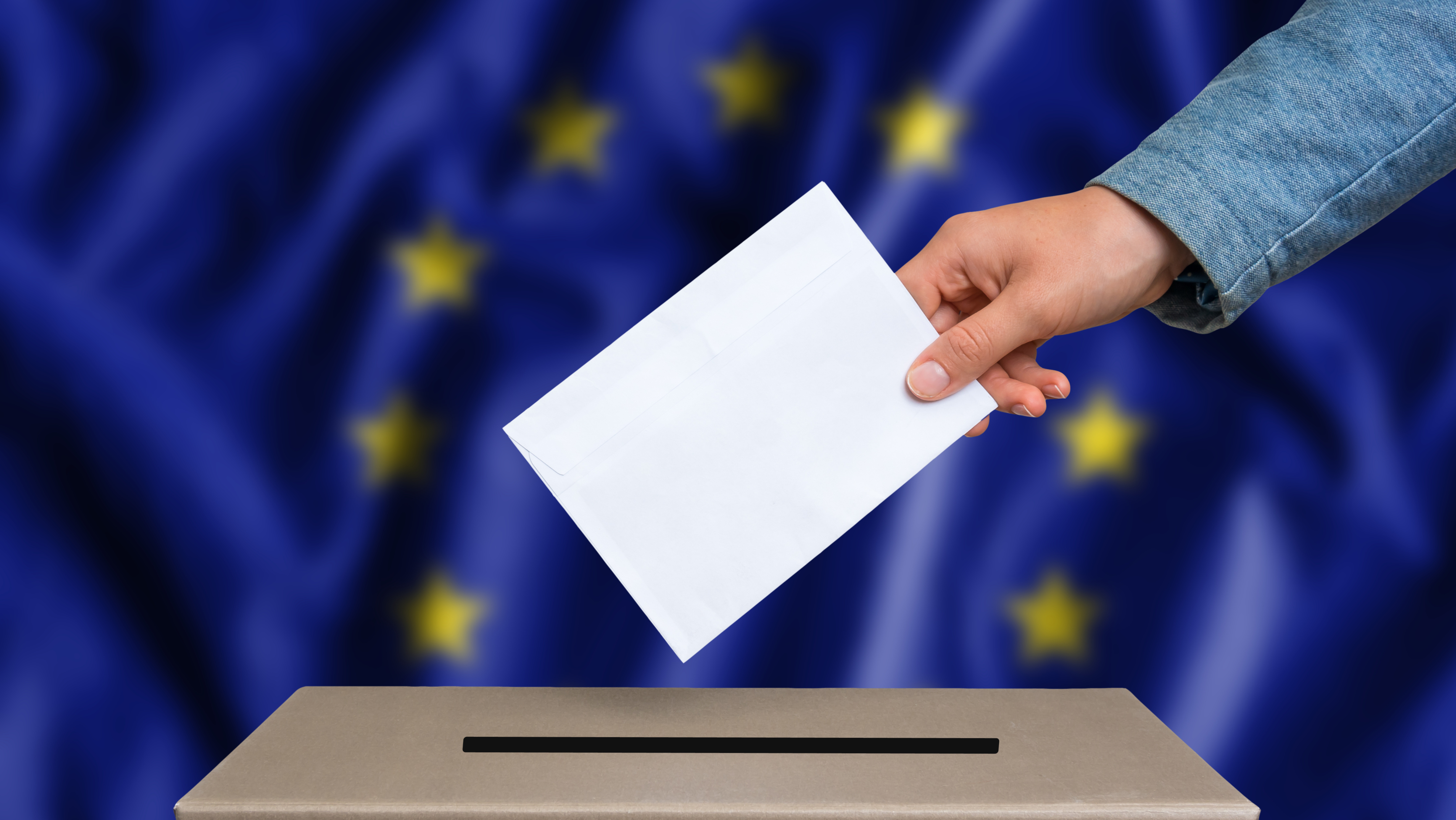
The current availability of mass information has given us great benefits, including increased global connection and broad access to different viewpoints. With information readily accessible at our fingertips, knowledge is widespread and access to information is democratized. However, tools like the internet have also created new and evolving technological vulnerabilities, a process that can potentially damage democratic structures and human rights.
The threat of disinformation has taken the spotlight recently, as technological advances in social media platforms and AI are rapidly developing. In the study “The impact of disinformation on democratic processes and human rights in the world”, coordinated by the European Parliament, researchers have found a direct relationship between the increased availability of technological resources and freedom within these systems, and the spread of disinformation. This issue raises multiple questions: What do we consider disinformation, and what are the EU institutions’ reactions to this growing issue?
The EU defines disinformation as the creation, presentation and dissemination of verifiably false or misleading information for the purposes of economic gain or intentionally deceiving the public. Disinformation is thus used as a political and ideological tool to harm. It has a purpose, and it is a planned strategy.
However, as disinformation increases, so do the actions to tackle this problem. The EU has recognized the severity of this threat regarding human rights violations and democracy and has set multiple plans of action to counter disinformation.
While the different social media platforms already possess mechanisms that try to prevent and ban the spread of disinformation, these actions have proven insufficient. Disinformation campaigns have grown sophisticated, using marketing strategies to micro-target audiences and decade the platform’s detection. Additionally, encryption measures on social media platforms are becoming a double-edged sword. While they aim to safeguard the public’s privacy, they make tracking these networks challenging.
As a result, the EU has implemented extensive mechanisms to counteract disinformation, such as the European Democracy Action Plan and the Digital Services Act. These proposals are intended to regulate online platforms and strengthen the EU’s commitment to combating disinformation in order to create a safer and fairer digital environment while safeguarding users’ fundamental rights. One key aspect of the DSA is its focus on protecting users from dangerous and illegal content, tackling cyberbullying, limiting targeted advertising, and enhancing transparency in content moderation decisions. Overall, the prioritization has been online safety and digital parenting by ensuring that platforms prioritize user rights, particularly those of children, and make terms and conditions accessible to them.
Furthermore, the European Parliament and the European External Action Service (EEAS) have been pivotal in leading efforts to fight disinformation through policy advocacy, financing, and international collaboration.
The EEAS has been tasked with countering disinformation within the EU framework by implementing action plans and rapid alert systems. The EEAS has played a central role in monitoring, analyzing, and responding to external threats related to disinformation campaigns. An example of the work done by the EEAS relies on creating the Strategic Communication Division and its Task Forces (STRAT.2). This division has been a leading force in the process of counter-disinformation and restriction. Its activities relied on campaigns, engagement with stakeholders, and support from independent media and civil societies, aiding in the implementation of EU policy.
On the other side, the European Parliament (EP) has emerged as an essential advocate for global and human rights while also serving as a forum for tackling complex issues surrounding disinformation. Political debates within the EP, specifically regarding the Digital Services Act (DSA) and the Digital Markets Act (DMA), have highlighted the delicate balance required in regulating disinformation while upholding fundamental freedoms. Furthermore, the European Parliament has collaborated closely with the Council of Europe to advance universal digital rights and strengthen overall global standards on the topic. By funding projects to counter disinformation, the EP has recognized the critical role of civil society organizations in this endeavour.
Indeed, the fight against disinformation presents complex challenges. Counter-disinformation must be carefully balanced to avoid infringing human rights, particularly freedom of expression. While the efforts to prevent and expose disinformation are, in theory, beneficial; in practice, the control of the institutions on the matter can create restrictions on freedom of speech. Consequently, researchers of the study “The impact of disinformation on democratic processes and human rights in the world” have argued that the EU must devote equal emphasis to helping non-governmental actors in its foreign policy since best practices from a human rights perspective frequently benefit from a more bottom-up strategy that focuses on boosting civic capacity against disinformation.
In conclusion, the EU has been actively addressing the growing threat of disinformation through different policies. However, there is a boundary that institutions must maintain to avoid making counter-disinformation tactics detrimental. While progress is being made, balancing efforts to combat disinformation with protecting fundamental rights remains challenging. Nonetheless, the EU’s effort to support civil society and improve media literacy demonstrates a commitment to preserving democratic ideals in the face of evolving threats.
If you are interested in this topic, check out:
Tackling disinformation, foreign information manipulation & interference. (2021). EEAS.
Dealing with propaganda, misinformation and fake news (s. f.). Democratic Schools For All
The Digital Services Act package. (2024). Shaping Europe’s Digital Future.

The current availability of mass information has given us great benefits, including increased global connection and broad access to different viewpoints. With information readily accessible at our fingertips, knowledge is widespread and access to information is democratized. However, tools like the internet have also created new and evolving technological vulnerabilities, a process that can potentially damage democratic structures and human rights.
The threat of disinformation has taken the spotlight recently, as technological advances in social media platforms and AI are rapidly developing. In the study “The impact of disinformation on democratic processes and human rights in the world”, coordinated by the European Parliament, researchers have found a direct relationship between the increased availability of technological resources and freedom within these systems, and the spread of disinformation. This issue raises multiple questions: What do we consider disinformation, and what are the EU institutions’ reactions to this growing issue?
The EU defines disinformation as the creation, presentation and dissemination of verifiably false or misleading information for the purposes of economic gain or intentionally deceiving the public. Disinformation is thus used as a political and ideological tool to harm. It has a purpose, and it is a planned strategy.
However, as disinformation increases, so do the actions to tackle this problem. The EU has recognized the severity of this threat regarding human rights violations and democracy and has set multiple plans of action to counter disinformation.
While the different social media platforms already possess mechanisms that try to prevent and ban the spread of disinformation, these actions have proven insufficient. Disinformation campaigns have grown sophisticated, using marketing strategies to micro-target audiences and decade the platform’s detection. Additionally, encryption measures on social media platforms are becoming a double-edged sword. While they aim to safeguard the public’s privacy, they make tracking these networks challenging.
As a result, the EU has implemented extensive mechanisms to counteract disinformation, such as the European Democracy Action Plan and the Digital Services Act. These proposals are intended to regulate online platforms and strengthen the EU’s commitment to combating disinformation in order to create a safer and fairer digital environment while safeguarding users’ fundamental rights. One key aspect of the DSA is its focus on protecting users from dangerous and illegal content, tackling cyberbullying, limiting targeted advertising, and enhancing transparency in content moderation decisions. Overall, the prioritization has been online safety and digital parenting by ensuring that platforms prioritize user rights, particularly those of children, and make terms and conditions accessible to them.
Furthermore, the European Parliament and the European External Action Service (EEAS) have been pivotal in leading efforts to fight disinformation through policy advocacy, financing, and international collaboration.
The EEAS has been tasked with countering disinformation within the EU framework by implementing action plans and rapid alert systems. The EEAS has played a central role in monitoring, analyzing, and responding to external threats related to disinformation campaigns. An example of the work done by the EEAS relies on creating the Strategic Communication Division and its Task Forces (STRAT.2). This division has been a leading force in the process of counter-disinformation and restriction. Its activities relied on campaigns, engagement with stakeholders, and support from independent media and civil societies, aiding in the implementation of EU policy.
On the other side, the European Parliament (EP) has emerged as an essential advocate for global and human rights while also serving as a forum for tackling complex issues surrounding disinformation. Political debates within the EP, specifically regarding the Digital Services Act (DSA) and the Digital Markets Act (DMA), have highlighted the delicate balance required in regulating disinformation while upholding fundamental freedoms. Furthermore, the European Parliament has collaborated closely with the Council of Europe to advance universal digital rights and strengthen overall global standards on the topic. By funding projects to counter disinformation, the EP has recognized the critical role of civil society organizations in this endeavour.
Indeed, the fight against disinformation presents complex challenges. Counter-disinformation must be carefully balanced to avoid infringing human rights, particularly freedom of expression. While the efforts to prevent and expose disinformation are, in theory, beneficial; in practice, the control of the institutions on the matter can create restrictions on freedom of speech. Consequently, researchers of the study “The impact of disinformation on democratic processes and human rights in the world” have argued that the EU must devote equal emphasis to helping non-governmental actors in its foreign policy since best practices from a human rights perspective frequently benefit from a more bottom-up strategy that focuses on boosting civic capacity against disinformation.
In conclusion, the EU has been actively addressing the growing threat of disinformation through different policies. However, there is a boundary that institutions must maintain to avoid making counter-disinformation tactics detrimental. While progress is being made, balancing efforts to combat disinformation with protecting fundamental rights remains challenging. Nonetheless, the EU’s effort to support civil society and improve media literacy demonstrates a commitment to preserving democratic ideals in the face of evolving threats.
If you are interested in this topic, check out:
Tackling disinformation, foreign information manipulation & interference. (2021). EEAS.
Dealing with propaganda, misinformation and fake news (s. f.). Democratic Schools For All
The Digital Services Act package. (2024). Shaping Europe’s Digital Future.

The current availability of mass information has given us great benefits, including increased global connection and broad access to different viewpoints. With information readily accessible at our fingertips, knowledge is widespread and access to information is democratized. However, tools like the internet have also created new and evolving technological vulnerabilities, a process that can potentially damage democratic structures and human rights.
The threat of disinformation has taken the spotlight recently, as technological advances in social media platforms and AI are rapidly developing. In the study “The impact of disinformation on democratic processes and human rights in the world”, coordinated by the European Parliament, researchers have found a direct relationship between the increased availability of technological resources and freedom within these systems, and the spread of disinformation. This issue raises multiple questions: What do we consider disinformation, and what are the EU institutions’ reactions to this growing issue?
The EU defines disinformation as the creation, presentation and dissemination of verifiably false or misleading information for the purposes of economic gain or intentionally deceiving the public. Disinformation is thus used as a political and ideological tool to harm. It has a purpose, and it is a planned strategy.
However, as disinformation increases, so do the actions to tackle this problem. The EU has recognized the severity of this threat regarding human rights violations and democracy and has set multiple plans of action to counter disinformation.
While the different social media platforms already possess mechanisms that try to prevent and ban the spread of disinformation, these actions have proven insufficient. Disinformation campaigns have grown sophisticated, using marketing strategies to micro-target audiences and decade the platform’s detection. Additionally, encryption measures on social media platforms are becoming a double-edged sword. While they aim to safeguard the public’s privacy, they make tracking these networks challenging.
As a result, the EU has implemented extensive mechanisms to counteract disinformation, such as the European Democracy Action Plan and the Digital Services Act. These proposals are intended to regulate online platforms and strengthen the EU’s commitment to combating disinformation in order to create a safer and fairer digital environment while safeguarding users’ fundamental rights. One key aspect of the DSA is its focus on protecting users from dangerous and illegal content, tackling cyberbullying, limiting targeted advertising, and enhancing transparency in content moderation decisions. Overall, the prioritization has been online safety and digital parenting by ensuring that platforms prioritize user rights, particularly those of children, and make terms and conditions accessible to them.
Furthermore, the European Parliament and the European External Action Service (EEAS) have been pivotal in leading efforts to fight disinformation through policy advocacy, financing, and international collaboration.
The EEAS has been tasked with countering disinformation within the EU framework by implementing action plans and rapid alert systems. The EEAS has played a central role in monitoring, analyzing, and responding to external threats related to disinformation campaigns. An example of the work done by the EEAS relies on creating the Strategic Communication Division and its Task Forces (STRAT.2). This division has been a leading force in the process of counter-disinformation and restriction. Its activities relied on campaigns, engagement with stakeholders, and support from independent media and civil societies, aiding in the implementation of EU policy.
On the other side, the European Parliament (EP) has emerged as an essential advocate for global and human rights while also serving as a forum for tackling complex issues surrounding disinformation. Political debates within the EP, specifically regarding the Digital Services Act (DSA) and the Digital Markets Act (DMA), have highlighted the delicate balance required in regulating disinformation while upholding fundamental freedoms. Furthermore, the European Parliament has collaborated closely with the Council of Europe to advance universal digital rights and strengthen overall global standards on the topic. By funding projects to counter disinformation, the EP has recognized the critical role of civil society organizations in this endeavour.
Indeed, the fight against disinformation presents complex challenges. Counter-disinformation must be carefully balanced to avoid infringing human rights, particularly freedom of expression. While the efforts to prevent and expose disinformation are, in theory, beneficial; in practice, the control of the institutions on the matter can create restrictions on freedom of speech. Consequently, researchers of the study “The impact of disinformation on democratic processes and human rights in the world” have argued that the EU must devote equal emphasis to helping non-governmental actors in its foreign policy since best practices from a human rights perspective frequently benefit from a more bottom-up strategy that focuses on boosting civic capacity against disinformation.
In conclusion, the EU has been actively addressing the growing threat of disinformation through different policies. However, there is a boundary that institutions must maintain to avoid making counter-disinformation tactics detrimental. While progress is being made, balancing efforts to combat disinformation with protecting fundamental rights remains challenging. Nonetheless, the EU’s effort to support civil society and improve media literacy demonstrates a commitment to preserving democratic ideals in the face of evolving threats.
If you are interested in this topic, check out:
Tackling disinformation, foreign information manipulation & interference. (2021). EEAS.
Dealing with propaganda, misinformation and fake news (s. f.). Democratic Schools For All
The Digital Services Act package. (2024). Shaping Europe’s Digital Future.






















































































































































